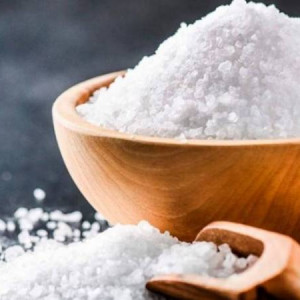The spice known as turmeric has health benefits for the body. Truth be told, this flavor has been utilized for millennia all over the world! It has been utilized for tormenting the board, stomach-related issues, hair and skin care, and a wide range of diseases. The ideal healthy addition to being present might be the taste known as turmeric.
Turmeric provides tremendous health benefits for both your body and brain, according to studies. Its vitally active fix, curcumin, is the source of many of these benefits. Continue reading to learn more about the benefits of turmeric and curcumin as well as what the science has to say about them.
It has been utilized in India for millennia as both zest and restorative spice. As of late, science has begun to back up conventional cases that turmeric contains compounds with restorative properties.
Most studies used turmeric extracts that are standardized to include copious amounts of curcumin. These compounds are called curcuminoids. The most important one is curcumin. Curcumin is the main active ingredient in turmeric. It has powerful anti-inflammatory effects and is an extraordinarily strong antioxidant. Curcumin is also fat-soluble, which means it breaks down and dissolves in fat or oil. That is why it may be a clever idea to take curcumin supplements with a meal that’s high in fat.
Curcumin has excellent natural anti-inflammatory and antioxidant properties. Inflammation is a major issue. It assists in fending off outside intruders and aids in the recovery of physical injury. Chronic inflammation can exacerbate a number of common chronic illnesses. Curcumin can inhibit a variety of substances that are known to be crucial in inflammation, but its bioavailability needs to be increased. Researchers now believe that persistent low-level inflammation may have a role in the development of several fatal diseases. Only a few instances of degenerative diseases are heart disease, cancer, metabolic syndrome, Alzheimer's disease, and others.
Turmeric can build the cell reinforcement limit of the body. Oxidative harm is accepted to be one of the components behind maturing and numerous illnesses. Curcumin is an intense cell reinforcement that can kill free revolutionaries because of its synthetic design. While curcumin has cell reinforcement impacts, more investigations are expected to affirm these advantages.
The brain-derived neurotrophic factor can be enhanced by curcumin. Curcumin increases levels of the brain hormone BDNF, which stimulates the development of new neurons and may aid in the prevention of a number of neurodegenerative disorders.
Your risk of heart disease may be minimized with curcumin. The leading cause of death globally is heart disease. Numerous milestones in the pathogenesis of heart disease may be helped by curcumin. Enhancing the functionality of the endothelium, the lining of your blood arteries, is perhaps curcumin's most essential benefit in terms of heart disease. Several research indicates that curcumin may enhance heart health. In addition, curcumin can diminish oxidation and inflammation, both of which have been linked to heart disease.
Cancer may be prevented with turmeric. Cancer is a condition marked by unchecked cell proliferation. Supplemental curcumin appears to have an impact on a variety of cancer types. Curcumin has been investigated as a useful herb in the treatment of cancer and has been discovered to have an impact on the growth and development of cancer.
Alzheimer's disease treatment with curcumin may be effective. The most common type of dementia, Alzheimer's disease may be to blame for up to 70% of dementia cases. The degenerative progression of Alzheimer's disease has been demonstrated to be significantly improved by curcumin, which can pass the blood-brain barrier.
Joint inflammation is a typical feature of the condition known as arthritis. Numerous studies have demonstrated the effectiveness of curcumin in treating the signs and symptoms of arthritis, sometimes outperforming anti-inflammatory medicines.
Depression can be prevented with curcumin. The antidepressant curcumin has shown some promise. According to a study involving 60 depressed individuals, curcumin is just as good as Prozac at reducing depressive symptoms.
Curcumin may be helpful in preventing and postponing the onset of aging-related chronic diseases. Due to its numerous positive health effects, including the ability to prevent heart disease, Alzheimer's disease, and cancer, curcumin may lengthen life expectancy.
It has potent anti-inflammatory and antioxidant properties. It may also lessen the signs and symptoms of depression and arthritis. These benefits may exist, but they are currently limited by curcumin's low bioavailability, calling for more research.
Although there is interest in utilizing turmeric for a variety of additional conditions, there is not enough trustworthy data to determine whether it would be beneficial.
There could be some Consequences of Turmeric
It is probably risk-free and often has few side effects. Some people may encounter minor side effects like diarrhea, nausea, dizziness, or upset stomach. At greater doses, these adverse effects are more frequent.
The use of turmeric on the skin is probably harmless. When turmeric is used as a mouthwash in the mouth, it might be harmless.
Small amounts of turmeric are frequently used as a spice in meals. However, it's probably risky to take more turmeric as medicine while expecting. It could set off a menstrual cycle or stimulate the uterus, endangering the pregnancy. If you are pregnant, avoid taking turmeric in therapeutic doses.
Many medical professionals believe that turmeric can exacerbate gallbladder issues. If you have gallstones or a blocked bile duct, avoid using turmeric.
For many people, using turmeric may reduce blood clotting. but in those with bleeding disorders, this can make bruising and bleeding more likely.
The website, www.chefsunilchauhan.com, does not offer medical advice, diagnosis, or treatment. The information provided in this article is for educational purposes only, and nothing on this website or by this brand should be construed as a substitute for professional medical advice. For any queries you may have about your health or a medical condition, always seek the advice of your doctor or another quality healthcare practitioner, and only act after consulting with a trained healthcare provider.















Follow Chef Sunil